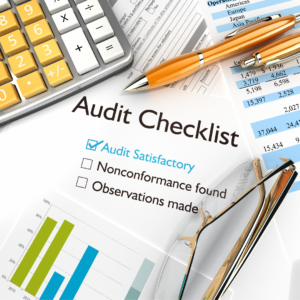Save Money or Pay Off Debt: Discover the best strategies to balance saving for the future and tackling your debt effectively
Deciding whether to save money or pay off debt first is a common challenge for anyone building a strong financial future.
Both saving and debt repayment are essential, but many people struggle to determine which should come first.
To make the right choice, it helps to evaluate the benefits of each option and consider your situation and goals.
When you think about saving money, you’re really thinking about creating a safety net. Savings protect you when unexpected events occur, such as medical emergencies, job loss, or significant surprise expenses.
Having money set aside gives you stability and peace of mind. It acts as a financial cushion during tough times.
Read the article below to find out why you need to do both. You can save and pay off your debt. If you’re being aggressive in paying off your debt, you might not be saving much because you’re attacking your debt. But make sure you always put funds in your savings, no matter how much debt you have.
Pros of Saving Money
Financial Security
• Saving money gives you a safety net so you’re protected when unexpected expenses come up.
• Having savings reduces stress because you know you’re prepared for surprises.
Opportunities for Growth
• Savings let you take advantage of good opportunities, like investing, going back to school, or starting a business.
• This helps you grow personally and financially.
Emergency Preparedness
• Before paying off debt aggressively, make sure you have an emergency fund.
• This fund stops you from needing to borrow more money when life throws unexpected costs your way.
Cons of Saving Money
Opportunity Cost
•Holding too much money in a low‑interest savings account can slow down your financial growth. That cash could earn more if it were invested, so keeping it in a low‑return account means you might miss out on better long‑term gains.
Debt Accumulation
•Saving instead of paying off debt first can cause your debt to grow.
Because interest keeps adding up, it can take longer to pay off what you owe and cost you more in the end.
Savings Interest Rates
• If the interest rate on your debt is higher than the interest rate on your savings, it usually makes more sense to pay off the debt first
•Paying off debt, especially debt with very high interest, saves you a lot of money over time. You stop wasting money on interest and can reach financial freedom faster.
Pros of Paying Off Debt
- Interest Savings: Paying off high‑interest debt saves you a lot of money because you stop wasting cash on interest and can use that money to build your wealth instead.
- Financial Freedom: Debt repayment feels freeing because it lowers your money worries and gives you more room to reach your financial goals
- Improved Credit Profile: Responsible debt repayment can positively impact credit scores, paving the way for better interest rates on future credit and loan applications.
Cons of Paying Off Debt
- Limited Liquidity: If you put too much money toward paying off debt, you might not have enough cash available for unexpected bills or emergencies.
- Missed Saving Opportunities: If you only focus on paying off debt, you might struggle to save money and miss chances to invest or build wealth.
The Right Approach: Striking a Balance
Deciding whether to save money or pay off debt depends on your personal situation, goals, and comfort with risk.
In most cases, a mix of both saving and debt repayment helps you stay financially stable while reducing what you owe.
How to Find the Right Balance
1. Pay Off High-Interest Debt
Focus on paying down high-interest debt first, like credit card balances. This reduces the amount of interest you pay over time and helps you reach financial freedom faster.
2. Build an Emergency Fund
Try to save three to six months of living expenses. This safety net protects you from unexpected costs, so you don’t have to rely on credit or loans.
3. Consider Investing
Once your high-interest debt is under control and you have some savings, you can look into investing. Investments can help grow your wealth, but it’s important to balance this with your need for cash and financial security.
Why Balance Matters
Saving and paying off debt are both important. Saving helps you prepare for the future, while debt repayment reduces financial stress and interest costs. The best approach is the one that fits your goals and feels manageable.
Creating a simple budget and talking to a financial advisor can help you understand your options and choose the path that works best for you, whether that means saving more, paying off debt faster, or doing both.
Check out this article:https://masteringpersonalfinances.com/creating-a-debt-repayment-plan/





